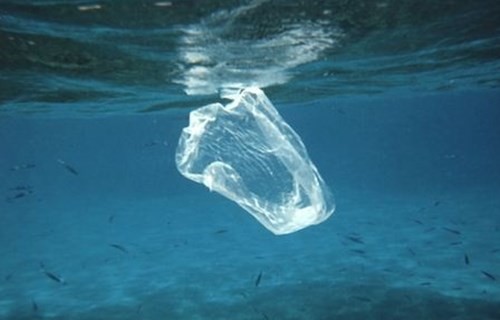Chinese scientists have developed a plastic that degrades in seawater and could help curb the increasingly serious plastic pollution in the oceans.
我国科学家近日研制出一种可在海水中降解的塑料,或将有助于控制日益严重的海洋塑料污染问题。
The new polyester composite material can decompose in seawater over a period ranging from a few days to several hundred days, leaving small molecules that cause no pollution, said Wang Gexia, a senior engineer at the Technical Institute of Physics and Chemistry of the Chinese Academy of Sciences.
中国科学院理化技术研究所高级工程师王格侠介绍,这种新型的聚酯复合材料可在数天到数百天内在海中降解,最终分解为不会对环境造成污染的小分子。
"For a long time, people focused on 'white pollution' on land. Plastic pollution in the seas only caught people's attention when more and more reports about marine animals dying from it appeared in recent years," said Wang.
王格侠表示:“长期以来人们关注的都是陆地上的白色污染。直至近几年,有关海洋生物因塑料污染死亡的报道越来越多,海洋塑料污染才引起人们的关注。”

Scientists combined non-enzymic hydrolysis, water dissolution and biodegradation processes to design and invent the new material.
科学家将非酶促水解、水溶解和生物降解的过程联系起来,设计并发明了这种新型材料。
About 4.8 million to 12.7 million ton of plastic waste goes into the seas very year, accounting for 60% to 80% of the total solid pollutants in the oceans, according to a conservative estimate by scientists.
据科学家保守估计,人类每年向海洋丢弃的塑料垃圾约为480万至1270万吨,占海洋固体污染物总量的60%-80%。
The institute has authorized four Chinese enterprises to use their technology, with three enterprises going into production with a total annual capacity of half the global biodegradable plastics, or 75,000 tons.
目前,该研究所已授权4家国内企业使用其技术,其中3家已经投产,可生物降解塑料总产能达到每年7.5万吨,占全球总量的一半。
China has given top priority to ecological environmental protection, contributing Chinese wisdom to resolving global pollution.
中国已经将生态环境保护放在了第一位,为解决全球污染问题贡献了中国的智慧。













